\
For a Free E-mail subscription to this newsletter, click below:
.
I finished reading a book I've had on my To Read List for about forty years--
The Great Traditionby F.R. Leavis, which is is his sometimes crotchety and sometimes brilliant analysis of why the greatest writers of the English novel were George Eliot, Henry James, and Joseph Conrad. He also includes Jane Austen in his list, but doesn't analyze her work in this book, and one novel by Dickens,
Hard Times.
He says, on about page ten of my old paperback edition, " It is necessary to insist that far from all of the names in the literary histories really belong to the realm of significant creative achievement....[I]t is well to start by distinguishing the few really great–the major novelists who count in the same way as the major poets...significant in terms of the human awareness they promote; awareness of the possibilities of life."
Leavis's great interest, then, is awareness, but also moral seriousness in literature. That is his special qualification, that a novel should be serious and deal with the complexities of moral and ethical behavior. I kept wanting to argue with him-- What about a well-turned sentence? What about stunning imagery? What about having fun? But in the end, I do value many of the same things as Leavis.
One of the main reasons to read a book like this, of course, is that you add books to your list of
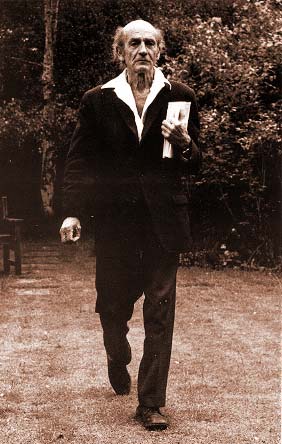
what to read. I added some Disraeli, some Walter Scott, and I tried again with Conrad, never my favorite. (See below for my notes on
The Secret Agent and also on Dickens'
Hard Times). I envy Leavis his certitude about what is best and what is a waste of time, and I also miss living in a time when the issue of novels are the Greatest was the serious project of thinkers. Some of the smartest people I know now, like my software engineer son, like to read, but don't see any particular reason to consider literature more important than, say, film or other story telling media.
Then, once you've looked at the Great Tradition, consider all the books being written now that you won't hear about in the New York Times Book Review. Many of these are trash; some of them however, may be great too.
The ones I feature this month come from small presses like Montemayor and Press 53 and even smaller ones. I have, of course, no problem with books from the conventional, commercial presses, but the commercial presses today are the source of only a fraction of the available books. Their project is first, more than forty years ago, to make money for their corporate master. This doesn't stop them from publishing may excellent books of artistic accomplishment and sometimes even books with a social conscience (see
Shelley Ettinger's list of best books she read in 2015). But there is far more interesting and experimental material out there than the commercial pressed today will take a chance with.
The gap is being filled by the small and smaller presses, university presses, low-tech presses with no expectation of making a profit, cooperative publishers that share costs with authors, and, of course, self-publishing.
Here are a few of those books you might want to take a look at.
For full disclosure, I should point out that Montemayor Press publishes some of my work, and one of the authors reviewed below is a former student of mine..
Chicago: August 28, 1968 by Marilyn Levy is that unusual thing, a group novel, organized by a particular moment in history. Each chapter traces the life and movements of a different character. Levy's moment is a crucial watershed in twentieth century American history, the events in Chicago during the 1968 Democratic Convention that nominated Hubert Humphrey to run for president. This was the year of student rebellions around the world, and of Martin Luther King's assassination and Robert Kennedy's assassination, as well as the general election in which Richard Nixon won the presidency.
In August, the anti-war demonstrators gathered in Chicago's parks and streets, and many famous people gave speeches and made statements.
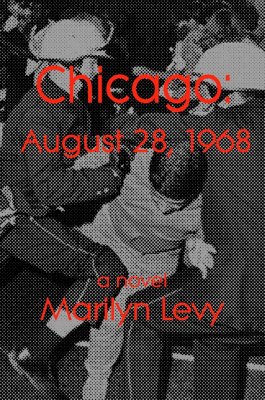
Levy's novel takes on the admirable and largely successful task of reminding us of, or introducing us to, a lot of history by creating the texture of what people experienced moment to moment during these protests and police riots.
It was shortly after these events that the student left in the United States broke into factions that ranged from the bomb building so-called Weatherman to new recruits for small leftist political parties to long road trips across America or back-to-the-land communes– or to graduate school. The various individuals who are followed in the chapters of this book represent many if not all of those groups, but also include young police officers and national guardsmen who didn't particularly want to be part of that day, but did what they saw as their duty.
My favorite characters (each getting more or less a point of view chapter, with figures we have met in previous chapters coming in and out of other people's chapters) include a slightly dim but extremely good looking male student who is unwillingly in the national guard in lieu of going to Vietnam; a woman who is having a break-down and an abortion at the same time; a woman whose mother is dying, who discovers that she is Jewish. There are Lotharios and political activists, college professors and a couple of students trying to get good grades in their classes for no work. It is a huge swath of people who were or might have been in Chicago that day– mostly young, mostly anti-war or else reluctant warriors.
Names from history come in and out, on television– Dave Dellinger, Reverend Ralph Abernathy, Abby Hoffman are all there that day. People are struck by police billy clubs. Levy's protestors are rarely the ones who threw bottles at the police. It is a striking, fast moving panorama, with a surprising ending.
The final chapters center on the dying mother of one character who has a life review of her escape from Austria during the rise of Hitler, and how she kept a secret of being Jewish. There is also a brief chapter about that woman's grand-daughter, the only chapter of which the actual present time of the story is not August 28, 1968– in which we have the satisfaction of finding out what happened to at least some of the people whose lives have touched us in the novel.
Poetry, of course, has long been thriving in small presses. In
Hotel Worthy by Valerie 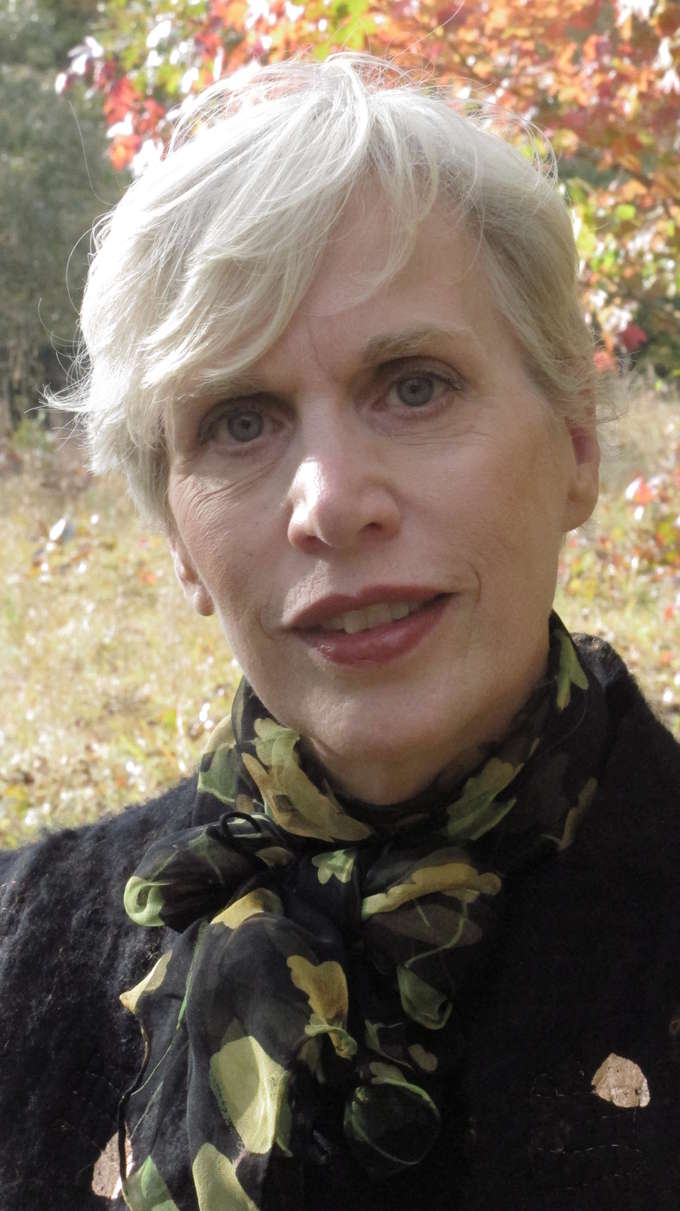 Nieman
Niemaneach poem is serious–not meaning without humor, because they are witty and often brilliant in their word experiments– but rather always reaching as far as they can go--serious as the opposite of superficial. A poem like "Stratigraphy," for example, starts with an archaeological site and brings us twenty-first century readers back to our ancient progenitors. Nieman makes this identification so smoothly that you feel suddenly that you are one of the ancient makers of the engraved figures.
Another good poem connecting us to ancient archeological sites is "The Guide: Cave Paintings at Fonte de Gaume," which takes another strategy and gives us the story of the guide's grandfather who, with his friends, marked the old cave paintings with graffiti.
We then, in Nieman's poems, are led to identify with the ancient artists, the scientists, and the careless adventuring boys– just for starters.
I have known Valerie Nieman's novels better than her poetry, so I'm not surprised she can tell a story–but I am awed that she can do it so compactly, with such brilliant attention to imagery and dreams and words. The title poem, "Hotel Worthy," written in full-justification chunks, is a splendid evocation of her own childhood (and much of mine!)– not the nostalgic parts, but the parts when you are trained and shaped in ways that your adult self may have to reject.
Balancing this psychological depth are other poems like the wonderful "Live With It" in which a woman takes a stand in favor of her own body:
It's not my hairy body that offends you,
but my hairy mind,
mammalian, full of heat.....
But to focus on the personal poems would be to miss the breadth of Nieman's collection: the archaeological poems are one part; there are also poems drunk on words like "Spandrel;" lots of nature and natural phenomenon for which she has precise language; poems about gardening and harvesting and other work. Even road kill gets a poem. The collection ranges widely, but its intelligence is always grounded in objects and bodies
.Almost at the end is a several part poem with apples called "A Blessing on the Tongue" that describes "the narrow hips of Red Delicious" and then ranges into history and the naming of apples like King Luscious, and the derivation of the word Luscious.
A lush and luscious collection.
The Beat Years by Ken Champion is a short novel that captures coming-to-adulthood in working class London in the mid-twentieth century with gritty accuracy and a moving story of friendship and the effort to live an intellectual life.
Ben and Johnny are young Londoners whose education ends early by twenty first century American standards, going to work as "decorators," painting buildings. Ben in particular is also engaged in a long, unhappy battle with his father. He reads philosophy and anything else he can get his hands on, and is especially drawn to Kerouac's On the Road, which he and Johnny yearn to emulate. The plot is both profound and familiar– growing up, trying for a life of the mind, making compromises. It is an evocation of the struggle to create a meaningfully examined life through passionate engagement with ideas and friendship.
MORE REVIEWS (by MSW unless labelled otherwise)
Fragile Brilliance: A Ronan McCullough Novel, police thriller by Eliot Parker, was reviewed by Lisa Brown-Gilbert in the Pacific Book Review. She says the book "will keep readers engaged to the last page as they are entertainingly immersed into the entangled, action packed and sometimes emotion piquing world of tenaciously durable police officer Ronan McCullough. Charleston, West Virginia Police officer Ronan McCullough is one tough character, he is thoroughly dedicated to his job and when he pursues a criminal he is relentless, willing to risk life and limb if necessary.
"However sergeant Ronan also has a gentler side, especially when it comes to his family, in particular his mate -Ty Andino. Ty is good looking, younger than Ronan and an emergency room nurse, at Charleston General hospital. The two share a home and a deep harmonious love for each other however; because of surrounding intolerance only a select few know the truth of their relationship while others are shown a friendly facade.
"Already leading a conflicted existence Sergeant Ronan's life becomes completely unsettled after coming to the aid of college student Michael Warner, who was in the midst of being assaulted by some goons outside of a sports bar. The intensely violent incident left Ronan and Michael, severely
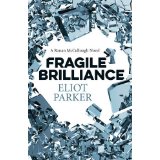
injured and Ronan questioning the true motives of the assailers. Ronan following his well-developed instincts from 20 years of police experience realizes that the incident may have only been the tip of the iceberg. Inexorably drawn into the case and always the dedicated police officer, Ronan is anxious to get to the truth of the incident.
"Ronan in his pursuit knows no bounds and uses Herculean efforts surpassing his own limits to unravel the growing web of deadly mystery. As the horrifying truth is exposed a diabolical plot involving a dangerous street drug comes to light. Ronan knows he is in the way and soon finds that he is not the only target of this devious adversary and it becomes a fast paced race against time, deadly drugs and murder to save family, limb and the people of Charleston.
"I found 'Fragile Brilliance' to be an easy read to get into it was competently written, featured likable characters had an evenly paced infusion of mystery, action and adult romance. I enjoyed the action scenes, which portrayed a realistic momentum.
"And as for the characters, tough, heroic natured Ronan and caring, nurturing Ty were interesting as individual characters and as a complementary gay couple involved in a believable relationship. Another engaging character is Ronan's estranged sister Melissa, she is angry, bossy, disrespectful, selfish and against her brother's homosexual lifestyle but she needs a relationship with her brother. Author Parker did a great job with portraying the conflicted and touching relationship between brother and sister bringing yet another engaging dimension of realism to the story.
"Overall, I enjoyed 'Fragile Brilliance;' it was a gripping, and gritty gay themed police thriller that kept me rapt in its pages until the end. I definitely recommend this book for adult readers, it was a great read."
The next review, by Chris Fischer, republished from
Readers' Favorite, is of a novel by a former student of mine, Yorker Keith. I am honored and delighted to share this excellent review of his novel,
Remembrance of Blue Roses. Everyone who reads this novel comments on the surprising and complex love story among the three main characters, but another special pleasure of the book is reading about the lives of dedicated employees of the United Nations. Yorker Keith captures both their struggles and disappointments and the idealism that keeps them at the U.N.
Chris Fischer writes:
In an intricately written, well told short novel released by debut novelist Yorker Keith,
Remembrance of Blue Roses tells a story that will stay with readers long after they have read the last page. Follow the
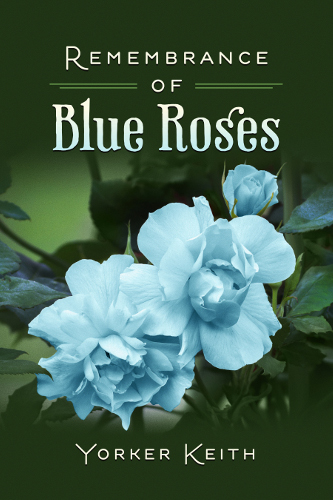
story of the complex relationship of Mark, Hans and Yukari, a group that has varying involvements from friendship, love, a love triangle, and even obsession. Inspired by the light blue of a dress that Yukari wears one day, Mark and Hans plant blue roses in her honor, and these serve as a reminder of their unique relationship. Many complications and relationships with others, including an ex-wife, ex-girlfriend, and an important friend enter in and out of the lives of the three, but the blue roses can always serve to remind them of what they shared.
I very much enjoyed Remembrance of Blue Roses. Author Yorker Keith has done a wonderful job in crafting a story line that will draw readers in from the very first page and will keep them reading until the very last page. His characters, especially the three that are the main focus of the story, are vividly drawn and seem to leap off the pages. Readers will have no problems in connecting with them, relating to them, and will continue to think of them long after the book is done. If that isn't a hallmark of a great author, I'm not sure what is. Any reader who enjoys a great work of fiction that's concisely drawn and tells a full story within a relatively short number of pages should absolutely read this book. I am pleased to recommend Remembrance of Blue Roses, and look forward to reading more from the very promising author, Yorker Keith, in the future.
The Secret Agent Joseph Conrad
I read halfway through before I really got into this Conrad short novel. Then, suddenly, I found myself deeply engaged in the heavy inevitability of the story, especially the small horrors of what happens to certain individuals. There is Verloc, whose easy life of desultorily gathering information for a foreign power who suddenly has a new boss who demands violent action. There is Verloc's mother-in-law, who makes an unnecessary sacrifice, and, especially, there is Mrs. Verloc with her breakdown at the loss of the one thing she loved. The book was published in 1907-- thus after the Victorian era, so I guess I shouldn't be surprised by the interesting psycho-sexual aspects. Strange and sad.
Hard Times by Charles Dickens
I'm not sure I fully understand why Leavis thinks this is the only Dickens novel sufficiently serious both morally and artistically to count among The Greats, but it was a touching story– and to my taste, not actually so different from other Dickens novels, except that it is tighter, more stripped down, and it doesn't star London.
I remember the first time I read it infinite years ago, maybe while I was at Barnard, and being bored by the whole horse-is-a-graminivorous-animal theme, not liking the people and hating (especially if I was reading it in 1968 or 69) Dickens's politics, which I still find pretty contemptible. He saw the the solution to all problems to be for the upper classes to be kinder. At least to the workers who are sufficiently respectful. So his politics still stink, but Dickens' quirky characters are always alive if not realistic, the great reality being his imagination.
READERS RESPOND
Judith Moffett says, "I feel the same about Saul Bellow. [See
discussion in Issue #180] I taught Henderson the Rain King once and tried really hard to get inside his sensibility, and have dutifully read other novels of his, and even attended his Nobel Lecture in Stockholm (I was there translating when he got the Prize), but it was no use."
SHELLEY ETTINGER'S BEST BOOKS OF 2015
Shelley Ettinger writes: "The best novels I read this year are: Adult Onset by Ann-Marie MacDonald, The Blue Between Sky and Water by Susan Abulhawa, The Residue Years by Mitchell S. Jackson, Signs Preceding the End of the World by Yuri Herrera, Song of the Shank by Jeffrey Renard Allen, The Space Between Us by Thrity Umrigar, Tumbledown by Robert Boswell, and The Turner House by Angela Flournoy.
JOHN BIRCH E-READER REPORT: JOHN GRISHAM E-BOOK AND PRINT NOVEL TOPS THE NEW YEAR'S FIRST WEEKLY LIST OF BEST SELLERS, PUBLISHED IN THE NEW YORK TIMES.
A novel by John Grisham -- he's written more than 30 -- tops the latest list of print and e-book best sellers published weekly by the New York Times. The book, "Rogue Lawyer," is about Sebastian Rudd, an attorney and "lone gunman" who hates injustice and the system, and defends unpopular clients. Here are the first ten of the 15 books in the Times list:
1. ROGUE LAWYER, by John Grisham. (9 weeks in the Times list)
2. THE MARTIAN, by Andy Weir. (30 weeks)
3. CROSS JUSTICE, by James Patterson. (4 weeks)
4. ALL THE LIGHT WE CANNOT SEE, by Anthony Doerr.(65 weeks)
5. THE GIRL ON THE TRAIN, by Paula Hawkins.(46 weeks)
6. SEE ME, by Nicholas Sparks. (10 weeks)
7. THE GUILTY, by David Baldacci. (5 weeks)
8. THE BAZAAR OF BAD DREAMS, by Stephen King.(7 weeks)
9. THE BONE LABYRINTH, by James Rollins. (1 week)
10. THE NIGHTINGALE, by Kristin Hannah. (34 weeks)
READ AND LISTEN ONLINE
John Birch has been running a blog for the past few years, and it now contains several dozen of his fiction and nonfiction stories, many of which have been published here and there in the U.S. and Europe. See it at www.JohnBirchLive.blogspot.com.
Barbara Crooker's poems updated regularly on her website.
Ingrid Hughes's blog has a story of one woman's journal through serious mental illness.
ANNOUNCEMENTS, BOOKS RECEIVED, CONTESTS, WORKSHOPS, READINGS AND MORE.
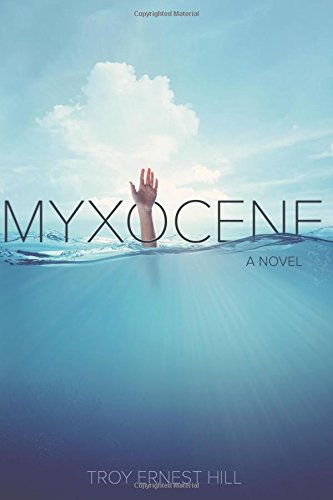 Coming soon: Troy Hill's new book Myxocene! See Troy's website athttp://www.troyernesthill.com/
Coming soon: Troy Hill's new book Myxocene! See Troy's website athttp://www.troyernesthill.com/
Bill Luvaas's new novel Beneath The Coyote Hills will come out with New York literary press Spuyten Duyvil in 2016.
Evelyn Walsh has won the SEÁN Ó FAOLÁIN SHORTSTORY COMPETITION for her story "White Rabbit !" Also see her work in the current issue of The Hamilton Stone Review.
IRENE WEINBERGER BOOKS:
.
A NOTE ABOUT AMAZON.COM
I have a lot of friends and colleagues who really despise Amazon. For a discussion of Amazon and organized labor and small presses, see the comments of Jonathan Greene and others in Issues #97and #98 .
The largest unionized bookstore in America has a webstore at Powells Books. Some people prefer shopping online there to shopping at Amazon.com. An alternative way to reach Powell's site and support the union is via http://www.powellsunion.com. Prices are the same but 10% of your purchase will go to support the union benefit fund.
WHERE TO FIND BOOKS MENTIONED IN THIS NEWSLETTER

If a book discussed in this newsletter has no source mentioned, don’t forget that you may be able to borrow it from your public library as either a hard copy or a digital copy. You may also buy or order from your local independent bookstore. (To find a bricks-and-mortar store, click the "shop indie" logo left).
To buy books online, I often use Bookfinder or Alibris. Bookfinder gives the price with shipping and handling, so you can compare what you’re really going to have to pay.
Another source for used and out-of-print books is All Book Stores. Also consider Paperback Book Swap, a postage-only way to trade books with other readers.
If you are using an electronic reader like Kindle, Nook, or Kobo, don't forget free books at theGutenberg Project—mostly classics, and free, free, free!
Kobobooks.com sells e-books for independent brick-and-mortar bookstores.
RESPONSES TO THIS NEWSLETTER
Please send responses to this newsletter and suggestions directly to Meredith Sue Willis . Unless you instruct otherwise, your responses may be edited for length and published in this newsletter.
BACK ISSUES click here.
LICENSE
what to read. I added some Disraeli, some Walter Scott, and I tried again with Conrad, never my favorite. (See below for my notes on The Secret Agent and also on Dickens' Hard Times). I envy Leavis his certitude about what is best and what is a waste of time, and I also miss living in a time when the issue of novels are the Greatest was the serious project of thinkers. Some of the smartest people I know now, like my software engineer son, like to read, but don't see any particular reason to consider literature more important than, say, film or other story telling media.
If you do like reading about literature, take a look at Leavis and his opinions. An excellent discussion of the book appears online athttps://www.timeshighereducation.com/books/the-canon-the-great-tradition-by-f-r-leavis/406552.article.Then, once you've looked at the Great Tradition, consider all the books being written now that you won't hear about in the New York Times Book Review. Many of these are trash; some of them however, may be great too.The ones I feature this month come from small presses like Montemayor and Press 53 and even smaller ones. I have, of course, no problem with books from the conventional, commercial presses, but the commercial presses today are the source of only a fraction of the available books. Their project is first, more than forty years ago, to make money for their corporate master. This doesn't stop them from publishing may excellent books of artistic accomplishment and sometimes even books with a social conscience (seeShelley Ettinger's list of best books she read in 2015). But there is far more interesting and experimental material out there than the commercial pressed today will take a chance with.The gap is being filled by the small and smaller presses, university presses, low-tech presses with no expectation of making a profit, cooperative publishers that share costs with authors, and, of course, self-publishing.Here are a few of those books you might want to take a look at.For full disclosure, I should point out that Montemayor Press publishes some of my work, and one of the authors reviewed below is a former student of mine..Chicago: August 28, 1968 by Marilyn Levy is that unusual thing, a group novel, organized by a particular moment in history. Each chapter traces the life and movements of a different character. Levy's moment is a crucial watershed in twentieth century American history, the events in Chicago during the 1968 Democratic Convention that nominated Hubert Humphrey to run for president. This was the year of student rebellions around the world, and of Martin Luther King's assassination and Robert Kennedy's assassination, as well as the general election in which Richard Nixon won the presidency.In August, the anti-war demonstrators gathered in Chicago's parks and streets, and many famous people gave speeches and made statements.Levy's novel takes on the admirable and largely successful task of reminding us of, or introducing us to, a lot of history by creating the texture of what people experienced moment to moment during these protests and police riots.
It was shortly after these events that the student left in the United States broke into factions that ranged from the bomb building so-called Weatherman to new recruits for small leftist political parties to long road trips across America or back-to-the-land communes– or to graduate school. The various individuals who are followed in the chapters of this book represent many if not all of those groups, but also include young police officers and national guardsmen who didn't particularly want to be part of that day, but did what they saw as their duty.My favorite characters (each getting more or less a point of view chapter, with figures we have met in previous chapters coming in and out of other people's chapters) include a slightly dim but extremely good looking male student who is unwillingly in the national guard in lieu of going to Vietnam; a woman who is having a break-down and an abortion at the same time; a woman whose mother is dying, who discovers that she is Jewish. There are Lotharios and political activists, college professors and a couple of students trying to get good grades in their classes for no work. It is a huge swath of people who were or might have been in Chicago that day– mostly young, mostly anti-war or else reluctant warriors.Names from history come in and out, on television– Dave Dellinger, Reverend Ralph Abernathy, Abby Hoffman are all there that day. People are struck by police billy clubs. Levy's protestors are rarely the ones who threw bottles at the police. It is a striking, fast moving panorama, with a surprising ending.The final chapters center on the dying mother of one character who has a life review of her escape from Austria during the rise of Hitler, and how she kept a secret of being Jewish. There is also a brief chapter about that woman's grand-daughter, the only chapter of which the actual present time of the story is not August 28, 1968– in which we have the satisfaction of finding out what happened to at least some of the people whose lives have touched us in the novel.Poetry, of course, has long been thriving in small presses. In Hotel Worthy by ValerieNiemaneach poem is serious–not meaning without humor, because they are witty and often brilliant in their word experiments– but rather always reaching as far as they can go--serious as the opposite of superficial. A poem like "Stratigraphy," for example, starts with an archaeological site and brings us twenty-first century readers back to our ancient progenitors. Nieman makes this identification so smoothly that you feel suddenly that you are one of the ancient makers of the engraved figures.
Another good poem connecting us to ancient archeological sites is "The Guide: Cave Paintings at Fonte de Gaume," which takes another strategy and gives us the story of the guide's grandfather who, with his friends, marked the old cave paintings with graffiti.We then, in Nieman's poems, are led to identify with the ancient artists, the scientists, and the careless adventuring boys– just for starters.I have known Valerie Nieman's novels better than her poetry, so I'm not surprised she can tell a story–but I am awed that she can do it so compactly, with such brilliant attention to imagery and dreams and words. The title poem, "Hotel Worthy," written in full-justification chunks, is a splendid evocation of her own childhood (and much of mine!)– not the nostalgic parts, but the parts when you are trained and shaped in ways that your adult self may have to reject.Balancing this psychological depth are other poems like the wonderful "Live With It" in which a woman takes a stand in favor of her own body:injured and Ronan questioning the true motives of the assailers. Ronan following his well-developed instincts from 20 years of police experience realizes that the incident may have only been the tip of the iceberg. Inexorably drawn into the case and always the dedicated police officer, Ronan is anxious to get to the truth of the incident.
"Ronan in his pursuit knows no bounds and uses Herculean efforts surpassing his own limits to unravel the growing web of deadly mystery. As the horrifying truth is exposed a diabolical plot involving a dangerous street drug comes to light. Ronan knows he is in the way and soon finds that he is not the only target of this devious adversary and it becomes a fast paced race against time, deadly drugs and murder to save family, limb and the people of Charleston."I found 'Fragile Brilliance' to be an easy read to get into it was competently written, featured likable characters had an evenly paced infusion of mystery, action and adult romance. I enjoyed the action scenes, which portrayed a realistic momentum."And as for the characters, tough, heroic natured Ronan and caring, nurturing Ty were interesting as individual characters and as a complementary gay couple involved in a believable relationship. Another engaging character is Ronan's estranged sister Melissa, she is angry, bossy, disrespectful, selfish and against her brother's homosexual lifestyle but she needs a relationship with her brother. Author Parker did a great job with portraying the conflicted and touching relationship between brother and sister bringing yet another engaging dimension of realism to the story."Overall, I enjoyed 'Fragile Brilliance;' it was a gripping, and gritty gay themed police thriller that kept me rapt in its pages until the end. I definitely recommend this book for adult readers, it was a great read."The next review, by Chris Fischer, republished from Readers' Favorite, is of a novel by a former student of mine, Yorker Keith. I am honored and delighted to share this excellent review of his novel,Remembrance of Blue Roses. Everyone who reads this novel comments on the surprising and complex love story among the three main characters, but another special pleasure of the book is reading about the lives of dedicated employees of the United Nations. Yorker Keith captures both their struggles and disappointments and the idealism that keeps them at the U.N.For more information, click here . For more reviews, click here.Chris Fischer writes:In an intricately written, well told short novel released by debut novelist Yorker Keith,Remembrance of Blue Roses tells a story that will stay with readers long after they have read the last page. Follow thestory of the complex relationship of Mark, Hans and Yukari, a group that has varying involvements from friendship, love, a love triangle, and even obsession. Inspired by the light blue of a dress that Yukari wears one day, Mark and Hans plant blue roses in her honor, and these serve as a reminder of their unique relationship. Many complications and relationships with others, including an ex-wife, ex-girlfriend, and an important friend enter in and out of the lives of the three, but the blue roses can always serve to remind them of what they shared.
I very much enjoyed Remembrance of Blue Roses. Author Yorker Keith has done a wonderful job in crafting a story line that will draw readers in from the very first page and will keep them reading until the very last page. His characters, especially the three that are the main focus of the story, are vividly drawn and seem to leap off the pages. Readers will have no problems in connecting with them, relating to them, and will continue to think of them long after the book is done. If that isn't a hallmark of a great author, I'm not sure what is. Any reader who enjoys a great work of fiction that's concisely drawn and tells a full story within a relatively short number of pages should absolutely read this book. I am pleased to recommend Remembrance of Blue Roses, and look forward to reading more from the very promising author, Yorker Keith, in the future.Coming soon: Troy Hill's new book Myxocene! See Troy's website athttp://www.troyernesthill.com/
Books for Readers Newsletter by Meredith Sue Willis is licensed under a Creative Commons Attribution-NoDerivs 3.0 Unported License. Permissions beyond the scope of this license may be available at http://www.meredithsuewillis.com. Some individual contributors may have other licenses.
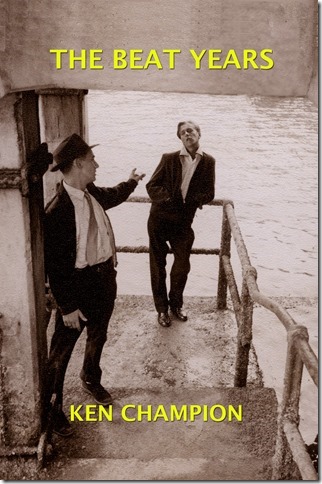
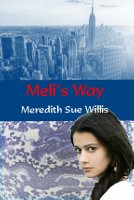


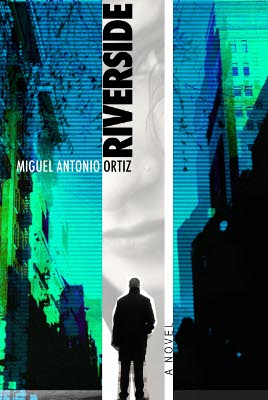
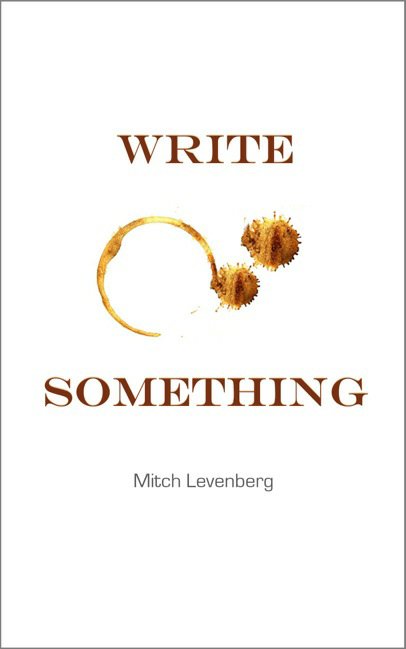
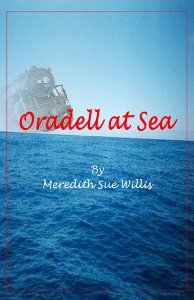


No comments:
Post a Comment